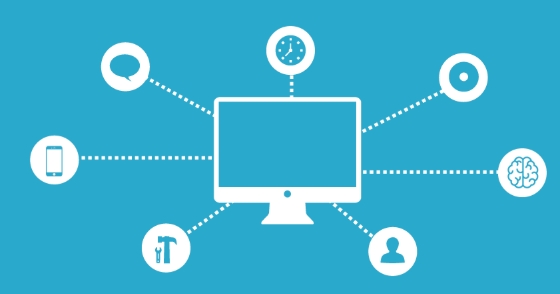The black screen of the remote desktop after logging in is usually caused by failed graphics or resource loading. The solutions are as follows: 1. Check whether the graphics card driver conflicts, try to enter safe mode to uninstall the current driver, use the basic driver or update to the latest version; 2. Adjust the remote desktop display settings, including setting the color to "high color (16-bit)", changing the resolution to the specific size, and canceling the synchronization of appearance preferences; 3. Optimizing the terminal service configuration, restarting the Remote Desktop Services service and cleaning up unnecessary sessions; 4. Troubleshooting system files or excessive resource usage, run sfc /scannow to scan the system files and check for abnormalities in explorer.exe or dwm.exe.

The black screen of the remote desktop after logging in is a common problem that many people encounter when using Windows Remote Desktop connection. This happens usually not a complete system crash, but a display exception caused by failure to load certain graphics or resources. Here are some solutions and troubleshooting directions you may need to try.

Check whether the graphics card driver conflicts
Incompatibility of graphics card drivers is one of the main reasons for the black screen of remote desktops, especially on servers or non-natively supported Windows versions.
You can try the following:

- In this unit enters safe mode (by restarting and pressing F8), uninstall the current graphics card driver
- Use Microsoft's own basic graphics card driver instead of third-party driver
- Update to the latest version of graphics card driver (especially NVIDIA or AMD graphics card)
If you cannot operate the target machine directly, you can consider fixing it through temporary access to other remote tools such as TeamViewer.
Adjust the display settings of the remote desktop
Sometimes, the settings of the remote desktop client itself will also cause the interface to fail to load normally. For example, the resolution is too high, the color digits are not set properly, etc.

You can try:
- Set the color of the remote desktop client to "High Color (16-bit)" instead of "High Color (32-bit)"
- Adjust the resolution of the local client, do not select "full screen", change to the specific size, such as 1024x768
- Remove the "Bring My Appearance Preferences to Remote Session" checkmark
These tweaks can be found in the "Display Options" of the Remote Desktop Connector.
Terminal service configuration optimization
Remote desktops rely on "terminal services" (now called Remote Desktop Services), and may also cause black screen if there is a problem with the related service.
You can try:
- Log in to the server and open the "Services" manager (services.msc)
- Find
Remote Desktop Servicesand right-click to restart the service - Check whether multiple users are logged in at the same time and force logout of other sessions (using the command
query sessionandreset session ID)
In addition, sometimes exhaustion of system resources (such as insufficient graphics memory) can also cause this problem, and proper restart of the host can often be alleviated.
System files are corrupt or resource occupancy is too high
Corrupted system critical files or a process full of resources may also lead to successful remote desktop connection but black screen.
Recommended to implement:
- Run
sfc /scannowlocally to scan system file integrity (administrator permission required) - Check the Task Manager to see if there is an explorer.exe or dwm.exe exception that takes up the CPU or crashes
- If explorer is not started, you can create a new task through Task Manager → File → and manually enter
explorer.exeto start the desktop environment
Basically, these common reasons and methods are there. Although it seems a bit too much, in most cases, starting with graphics card drivers and remote settings can solve the problem.
The above is the detailed content of Remote Desktop black screen after login. For more information, please follow other related articles on the PHP Chinese website!

Hot AI Tools

Undress AI Tool
Undress images for free

Undresser.AI Undress
AI-powered app for creating realistic nude photos

AI Clothes Remover
Online AI tool for removing clothes from photos.

Clothoff.io
AI clothes remover

Video Face Swap
Swap faces in any video effortlessly with our completely free AI face swap tool!

Hot Article

Hot Tools

Notepad++7.3.1
Easy-to-use and free code editor

SublimeText3 Chinese version
Chinese version, very easy to use

Zend Studio 13.0.1
Powerful PHP integrated development environment

Dreamweaver CS6
Visual web development tools

SublimeText3 Mac version
God-level code editing software (SublimeText3)

Hot Topics
 How to undo multiple times in Photoshop
Jun 28, 2025 am 12:08 AM
How to undo multiple times in Photoshop
Jun 28, 2025 am 12:08 AM
In Photoshop, continuous undoing of multiple steps can be achieved through three methods. First, use the "History" panel and click any step to fall back to this state; second, press the Alt Ctrl Z (Windows) or Option Command Z (Mac) shortcut keys to gradually undo; third, create a "snapshot" to save the key state so that it can be restored at any time. Among them, mastering the "History" panel and undo shortcut keys can meet daily photo editing needs.
 How to send a document for signatures with Adobe Acrobat Sign?
Jul 02, 2025 am 12:44 AM
How to send a document for signatures with Adobe Acrobat Sign?
Jul 02, 2025 am 12:44 AM
The steps to send documents for others to sign with Adobe AcrobatSign are as follows: 1. Prepare the final version of the PDF file. If there is no PDF, you can upload it to other formats to automatically convert it, and ensure that the content is correct; 2. Create a new signing process after logging in, add recipient information and set the signature location, assign permissions to each signer, and adjust the signing order; 3. Optionally set email reminders, deadlines and signature methods to improve signing efficiency; 4. Send the document after confirming that it is correct, track the signing status through the system in real time, and download a copy or resend a reminder to complete the signing process.
 How to enable the Adobe Acrobat extension in Chrome?
Jul 02, 2025 am 12:51 AM
How to enable the Adobe Acrobat extension in Chrome?
Jul 02, 2025 am 12:51 AM
To solve the problem that Chrome browser cannot preview PDFs online, 1. Install the official Adobe Acrobat extension; 2. Enter the extension page to make sure it is enabled and set to allow incognito mode to run; 3. Turn off the built-in PDF reader option in Chrome settings to set it to be opened by default with Acrobat; 4. If you encounter a prompt "Managed by Organization", you need to contact the administrator to handle it. After completing the above steps, you can directly view PDF files in your browser.
 How to flatten a PDF in Adobe Acrobat?
Jun 30, 2025 am 12:05 AM
How to flatten a PDF in Adobe Acrobat?
Jun 30, 2025 am 12:05 AM
Retaining layer information when exporting PDFs can cause compatibility issues, and flattening can resolve this issue. Use the "Pre-press Check" tool of Adobe AcrobatProDC to flatten the PDF with one click, which is suitable for most cases; 1. Open the PDF, click "Tools" > "Pre-press Check" on the right; 2. Click the gear icon, select "Flat Page Content", and confirm and save the file. Advanced users can manually adjust settings: 1. Create a new configuration file and check "Flat Transparency" in "Repair"; 2. Set the resolution and apply the configuration. After flattening, you should pay attention to problems such as larger file size, reduced editing, and text conversion to pictures. It is recommended to keep the original copy for modification.
 Why are my lines not showing up in AutoCAD?
Jul 01, 2025 am 12:04 AM
Why are my lines not showing up in AutoCAD?
Jul 01, 2025 am 12:04 AM
Problems are usually caused by layer settings, viewport display, line-type scale, or graphic refresh. 1. Check whether the layer is closed or frozen, and confirm that the color is different from the background; 2. Use ZOOMEXTENTS in the viewport to ensure that the geometry is within the visual range; 3. Adjust the LTSCALE value to fix the linear scale abnormality; 4. Check whether there are color output restrictions in the printing style sheet; 5. Try the REGEN command or switch the visual style to solve the graphics rendering problem. Check the reasons in order to quickly locate the reasons.
 How to create a neon effect in Photoshop
Jul 02, 2025 am 12:16 AM
How to create a neon effect in Photoshop
Jul 02, 2025 am 12:16 AM
The key to making neon light effects in Photoshop lies in the matching of layer style and overlay method. The specific steps are as follows: 1. Use "Inner Glow" and "Gradial Overlay" to create basic luminescence, select neon tones and adjust parameters to simulate the brightness of the lamp; 2. Add "Outer Glow" and combine "Gaussian Blur" to enhance the three-dimensional sense of the halo; 3. Improve the texture by adding noise to make the effect closer to the real neon; 4. Use dark backgrounds, projections and atmosphere materials to enhance the overall visual impact.
 How to make an image look old in Photoshop
Jul 02, 2025 am 12:47 AM
How to make an image look old in Photoshop
Jul 02, 2025 am 12:47 AM
To make pictures look age-like in Photoshop, you need to imitate the characteristics of old photos and master the key steps. First, add warm tones to increase yellow and red to reduce blue by Color Balance, or use Gradient Map to select brown and yellow gradients and adjust blending mode and opacity. Secondly, adding texture and noise can be used to control the values ??using the Add Noise filter, or overlay old photo textures and set blending mode. Again, make scratches and edge wear to download scratch maps as layers and adjust positions and modes, or use built-in filters to simulate effects. Finally, pay attention to moderate processing, use adjustment layers and masks to facilitate modification, and appropriately reduce contrast to make the picture softer and more natural.
 How to colorize a photo in Photoshop using neural filters
Jul 02, 2025 am 12:33 AM
How to colorize a photo in Photoshop using neural filters
Jul 02, 2025 am 12:33 AM
When using neural network filters to color photos in Photoshop, you need to pay attention to key steps and details. First, make sure that the software version supports this function, log in to the Adobe account and download and install the filter plug-in; then open the "Smart Coloring" option, and let the AI ??automatically finish the coloring after downloading the model; then check the results, use the brush tool, local application filters or combined with desaturation to manually color the error area; finally, after confirming that the effect is correct, export and save, it is recommended to keep the two versions of the AI ??layer and the final product. Although the entire process is simple, you need to pay attention to network connection, model loading and post-adjustment techniques.






